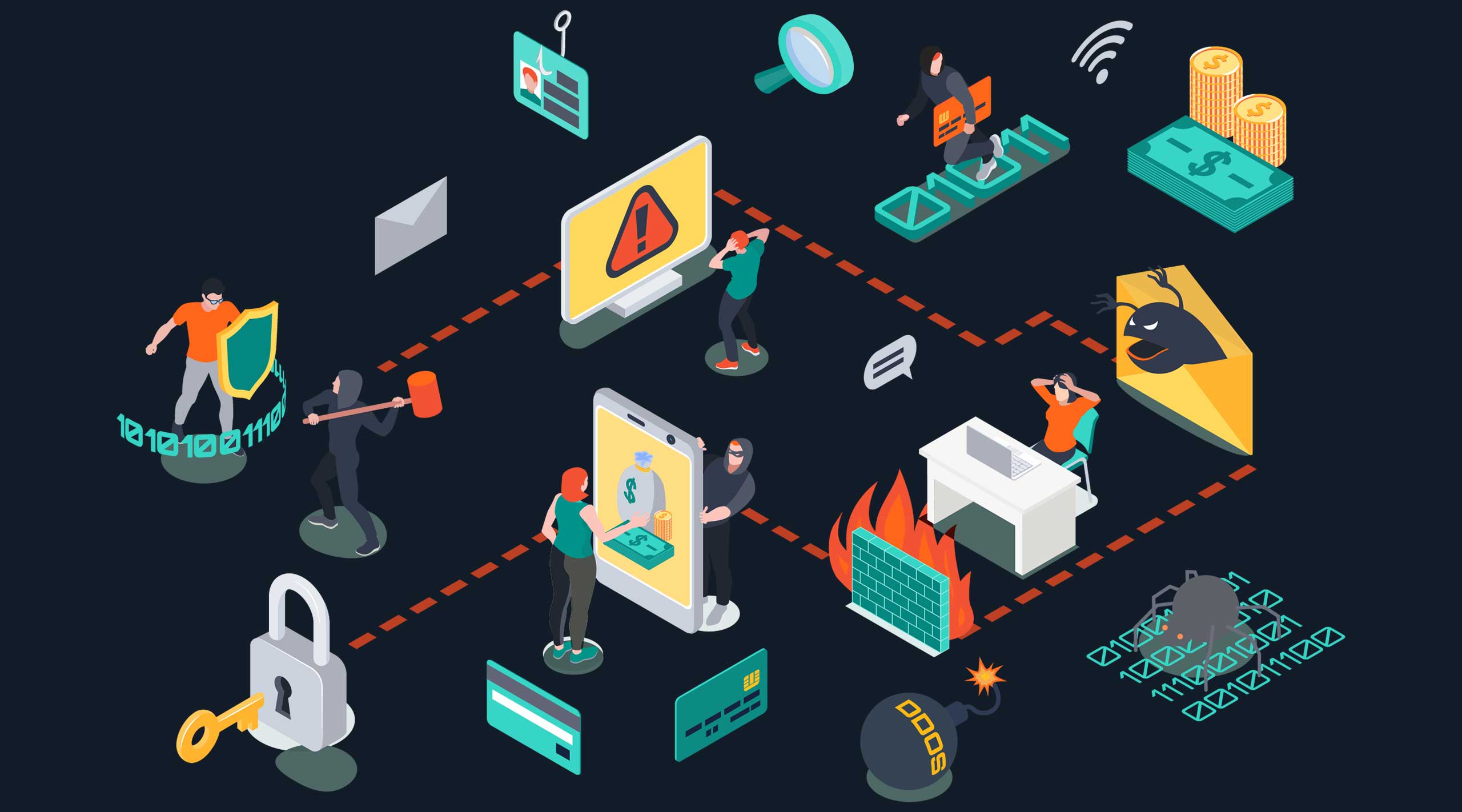
Cybersecurity for Small Businesses: Essential Tips and Tools
Small businesses are just as vulnerable to cyber attacks as large enterprises, but often lack the resources for robust security programs. This blog provides practical cybersecurity advice for small business owners to protect against threats.
In today’s digital landscape, small businesses are not immune to cyber threats. In fact, they are often targeted precisely because they may lack the robust defenses of larger corporations. However, with the right strategies and tools, small businesses can significantly enhance their cybersecurity posture. In this comprehensive guide, we’ll delve into practical advice and resources tailored specifically for small businesses, alongside insights from cybersecurity experts at sec1, a leading company in the field.
Understanding the Threat Landscape
Understanding the types of cyber threats that small businesses face is the first step towards building effective defenses. Common threats include phishing attacks, ransomware, malware, and insider threats. Reference: Cybersecurity and Infrastructure Security Agency (CISA).
Assess Your Risks
The first step is understanding your specific risks. Consider:
- What type of data do you store? Customer, financial, healthcare and intellectual property data have more stringent regulations [1].
- What systems and tools do you use? Cloud services, remote employees, and sales networks expand your attack surface [2].
- What industry are you in? Healthcare, finance and technology face more threats [3].
- What would be the impact of downtime from ransomware or other attacks? Lost revenue, reputation damage, fines for noncompliance [4]?
Knowing your weak points will help focus security efforts.
Build a Security Culture
Your team is your first line of defense. Training helps avoid human error that leads to breaches [5]. Key topics:
- Secure password policies – Require strong, unique passwords and multi-factor authentication [6].
- Phishing awareness – Test employees to spot and report suspicious emails.
- Safe web use – Caution against visiting risky sites and entering credentials.
- Removable media – Ban unauthorized USB drives which spread malware.
Establishing a Strong Security Culture A culture of security starts from the top down. Small business owners should prioritize cybersecurity awareness among their employees. Regular training sessions, policies on data handling, and incident response protocols are essential components of a security-conscious culture.
Implementing Basic Cyber Hygiene Practices Simple yet effective cyber hygiene practices can go a long way in bolstering security. These include regularly updating software and systems, using strong, unique passwords, and enabling multi-factor authentication (MFA) wherever possible.
Regularly refreshing training prevents lapses in security habits.
Manage Your Assets and Access
You can’t secure what you don’t know you have. Asset and inventory management provides visibility into:
- Hardware like laptops, mobile phones, Wi-Fi routers.
- Software like operating systems, apps, services.
- Code repositories, data stores and servers.
- User accounts across all systems.
Closely manage access with least privilege to prevent unauthorized access. Institute separation of duties so no one person has excessive control [7].
Adopt Essential Controls
Cybersecurity experts recommend these key controls [8]:
- Next-gen antivirus – Prevents malware, viruses and spyware.
- Endpoint detection and response – Finds threats that bypass antivirus.
- Backup and recovery – Enables restore after incidents like ransomware.
- Firewalls – Blocks intrusions to private networks.
- VPN – Encrypts remote access and Wi-Fi for mobile workforce.
- Access controls – Reduces lateral movement within systems.
- Vulnerability assessment – Proactively find and patch software flaws.
- Email security – Prevents phishing attacks.
- Mobile device security – Extends protection to phones and tablets.
Leverage Managed Security Services
Most small businesses cannot staff full cybersecurity teams. Leveraging managed security service providers (MSSPs) adds expertise without overstretching budgets. Examples include:
- Sec1 – An industry leader providing 24/7 threat monitoring, incident response, vulnerability assessments, penetration testing, compliance audits and security awareness training tailored to small businesses.
- Email and endpoint security provided as cloud services rather than on-premises software.
Outsourcing security tasks allows small teams to focus on core business goals.
While data breaches make headlines, following these best practices tailored to limited resources makes cybersecurity attainable for small businesses. For more guidance securing your organization, contact cybersecurity experts at Sec1.
References
[1] NCSC, “Cyber Security Small Business Guide”, https://www.ncsc.gov.uk/collection/small-business-guide
[2] BetterCloud, “2020 State of SMB Cybersecurity Report”
[3] Hiscox, “Hiscox Cyber Readiness Report 2019”, https://www.hiscox.com/documents/2019-Hiscox-Cyber-Readiness-Report.pdf
[4] IBM, “2019 Cost of a Data Breach Report”
[5] Verizon, “Data Breach Investigations Report”, https://enterprise.verizon.com/resources/reports/2019-data-breach-investigations-report.pdf
[6] NIST, “Digital Identity Guidelines”, https://pages.nist.gov/800-63-3/sp800-63b.html
[7] CIS, “CIS Controls”, https://www.cisecurity.org/controls/
[8] US Chamber of Commerce, “Cybersecurity Best Practices”

